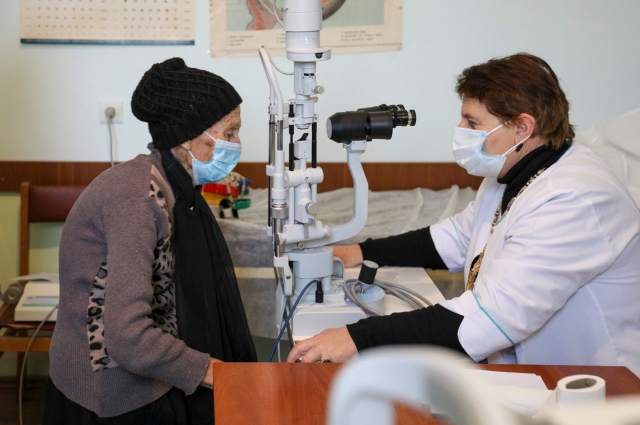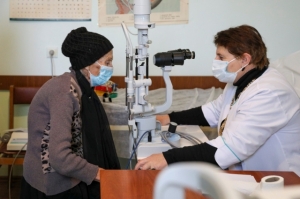Helping Conflict-affected Communities Cope with Pandemic
Medical equipment worth USD 12,500 was donated by the United Nations Development Program (UNDP) to the outpatient clinic in the village of Nikozi in the Shida Kartli region, as part of a broader effort to protect vulnerable groups from the consequences of the COVID-19 pandemic. UNDP Head Louisa Vinton delivered a portable X-ray machine and other supplies during a visit to the clinic last week.
During her visit, Vinton signed a Memorandum of Understanding with the clinic head, Nikoloz Dzamukashvili, to assist the medical facility in providing local communities with better access to essential health services. UNDP support will ensure that patients can get the services they need either in the clinic or at home.
Located in close vicinity to the administrative boundary line with the South Ossetia/Tskhinvali region, the Nikozi clinic is the only medical service provider to a local population of 3,000, including 1,100 older people from internally-displaced and conflict-affected communities.
With the pandemic still causing illness and death in Georgia, affordable mobile healthcare services, such as radiological examinations and blood tests, are crucially important, especially for the elderly and people with underlying health conditions and disabilities, who often have mobility problems. Yet medical facilities in rural areas often lack the equipment needed to provide patients with adequate examination and treatment.
To fill in this gap, UNDP purchased modern medical devices for the Nikozi clinic in 2020, and assisted in furnishing and equipping a clinical and biochemical laboratory and an X-ray diagnostic room.
“Since the beginning of the COVID-19 crisis, UNDP has been working to protect vulnerable groups from pandemic shocks,” said Vinton. ”While tending to urgent needs, we are also exploring how we can help build more sustainable models to ensure that at-risk communities receive vital services during the pandemic and beyond.”
Assistance to conflict-affected communities is part of UNDP’s wider response to the pandemic, drawing on the organization’s experience in eradicating poverty, reducing inequalities and building resilience to crisis, with a focus on the elderly, women, ethnic minorities, IDPs and other vulnerable groups. Funding for this assistance comes from a UNDP-funded project to support conflict-affected women during the COVID-19 crisis, a UN-funded pandemic programme for vulnerable groups, and UNDP’s Danish-funded good governance program.












